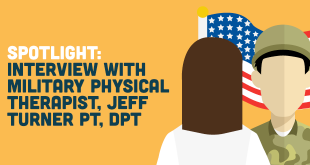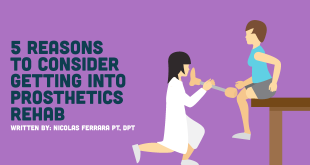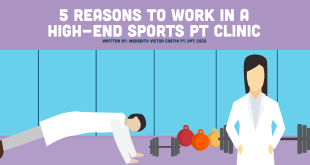Welcome to your ultimate guide on passing the National Physical Therapy Exam (NPTE)! If you're an aspiring physical therapist gearing up to tackle this crucial milestone, you're in the right place. In this article, we'll dive deep into what you need to know to pass the national physical therapy exam and embark on your journey to becoming a licensed PT.
Understanding the NPTE
Before we delve into the specifics, let's start by understanding what the NPTE is all about. The NPTE is a comprehensive exam designed to assess your knowledge and skills in various areas of physical therapy. From anatomy and physiology to therapeutic exercise and patient care, the exam covers a wide range of topics essential for practicing as a physical therapist. For more information, check out the FSBPT - National Physical Therapy Examination (NPTE) resource.
Content Areas Covered in the NPTE
To pass the NPTE, you need to have a solid understanding of the content areas covered in the exam. These include anatomy, physiology, biomechanics, and clinical decision-making, among others. Each content area is weighted differently, so it's crucial to allocate your study time accordingly. Dive into the Therapy Exam Prep platform for a comprehensive breakdown of the NPTE content areas and study resources.
Study Strategies for NPTE Success
Now, let's talk about study strategies. Developing a structured study plan tailored to your learning style is essential for NPTE success. Start by selecting high-quality study resources, such as textbooks, review courses, and online practice exams. Then, create a study schedule that allows you to cover all content areas while leaving time for review and practice. Don't forget to incorporate regular practice with NPTE-style questions to familiarize yourself with the exam format and build confidence. For additional guidance, explore the NPTE Practice Test Questions resource.
Test-Taking Strategies
In addition to content knowledge, mastering test-taking strategies is key to passing the NPTE. Practice with different types of questions, such as multiple-choice, clinical scenario, and task-based simulations, to hone your test-taking skills. Learn how to manage your time effectively during the exam and prioritize questions based on difficulty. With the right strategies in place, you'll be well-equipped to tackle any challenge that comes your way on exam day.
Mental and Emotional Preparation
Last but not least, don't underestimate the importance of mental and emotional preparation. The NPTE can be a stressful experience, so it's essential to take care of your mental and emotional well-being. Practice relaxation techniques, such as deep breathing and mindfulness, to stay calm and focused during the exam. Remember to maintain a healthy balance between studying and self-care to prevent burnout.
Conclusion
In conclusion, passing the NPTE requires a combination of knowledge, strategy, and resilience. By understanding the exam format, mastering content areas, and honing your test-taking skills, you can increase your chances of success on exam day. So, roll up your sleeves, dive into your studies, and remember that you've got what it takes to ace the NPTE!
References
Morris PE, Goad A, Thompson C, et al. Early intensive care unit mobility therapy in the treatment of acute respiratory failure. Crit Care Med. 2008 Aug;36(8):2238-43.
Schweickert WD, Pohlman MC, Pohlman AS, et al. Early physical and occupational therapy in mechanically ventilated, critically ill patients: a randomized controlled trial. Lancet. 2009 May 30;373(9678):1874-82.
Perme, Christiane et al. “Safety and Efficacy of Mobility Interventions in Patients with Femoral Catheters in the ICU: A Prospective Observational Study.” Cardiopulmonary Physical Therapy Journal 24.2 (2013): 12–17.
Denehy L, de Morton NA, Skinner EH, Edbrooke L, Haines K, Warrillow S, et al. (2013) A physical function test for use in the intensive care unit: validity, responsiveness, and predictive utility of the physical function ICU test (scored). Phys Ther 93: 1636–1645
Kawaguchi YMF et al. Perme Intensive Care Unit Mobility Score and ICU Mobility Scale: translation into Portuguese and cross-cultural adaptation for use in Brazil. J Bras Pneumol. 2016;42(6):429-431
Perme C et al. A tool to assess mobility status in critically ill patients: the Perme Intensive Care Unit Mobility Score. Methodist Debakey Cardiovasc J. 2014 Jan-Mar;10(1):41-9.
Nawa RK et al. Initial interrater reliability for a novel measure of patient mobility in a cardiovascular intensive care unit. J Crit Care. 2014 Jun;29(3):475.
Hodgson CL, Stiller K, Needham DM, et al. Expert consensus and recommendations on safety criteria for active mobilization of mechanically ventilated critically ill adults. Critical Care. 2014;18(6):658.
Wang YT, Haines TP, Ritchie P, et al. Early mobilization on continuous renal replacement therapy is safe and may improve filter life. Critical Care. 2014;18(4)
 NewGradPhysicalTherapy.com The Largest Online Resource For New Grad Physical Therapists
NewGradPhysicalTherapy.com The Largest Online Resource For New Grad Physical Therapists







Awesome article Seb! Thanks for all the info.
Thank you Clinton. I hope it is helpful for all my colleagues out there.
Thanks for the article! Pending successful completion of the NPTE, I’ll be starting out as an ICU/acute care therapist in August. I’m so excited to be part of a mobility-friendly facility — I’ve seen the other side of the aisle as a student on rotation, and the overall QOC provided to those patients is vastly different. Way to encourage mobility advocacy!
Thanks for your comment Katie. The ICU can be an inspiring place to work. I also know the other side of the coin exists where patients are pretty much chained to their bed. No matter where you end up, I hope you’ll keep fighting the good fight. Take care